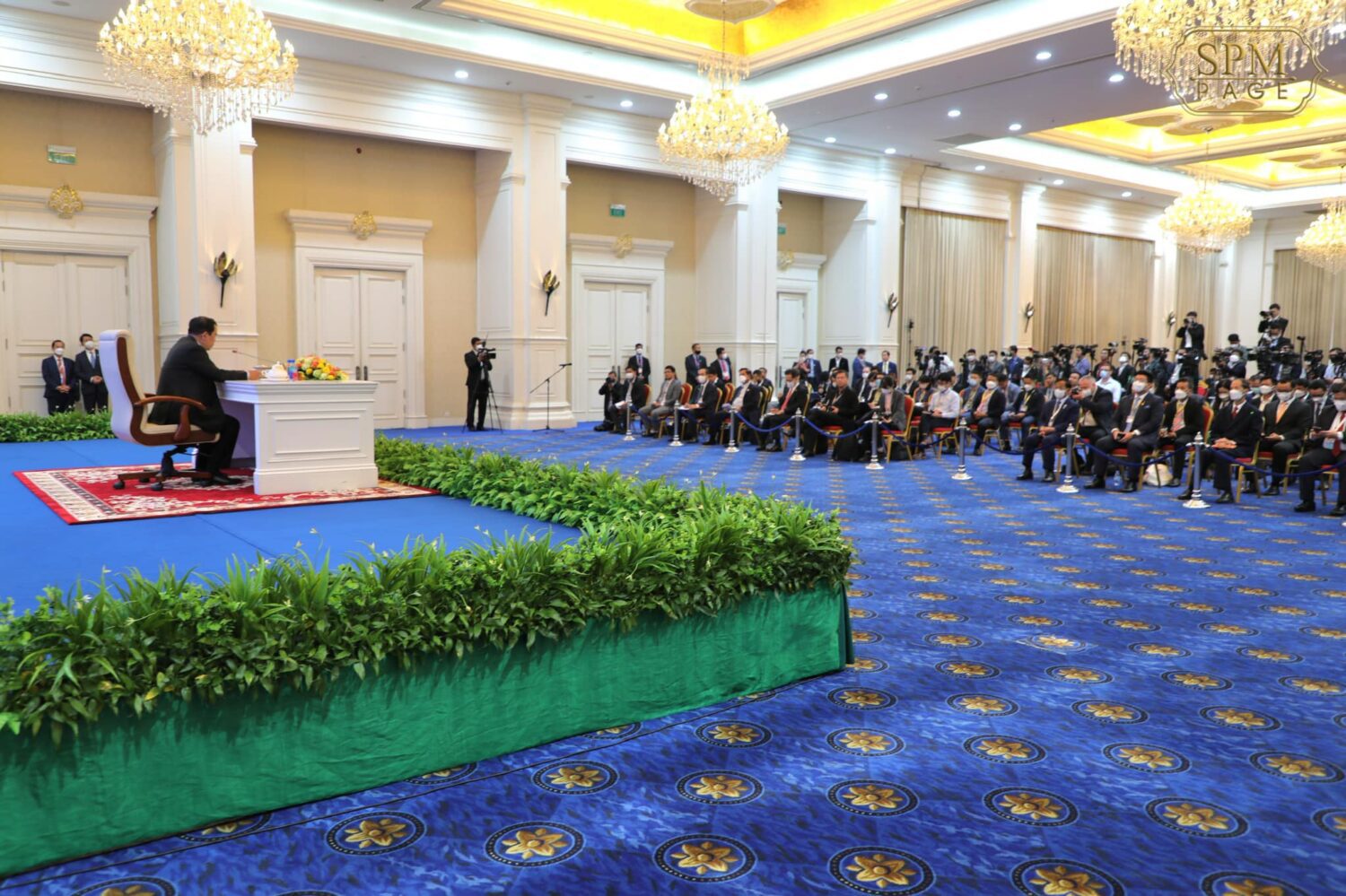CORRECTED, 2:07 p.m.—Media advocacy organizations decried officials’ unexplained decision to ban reporters from news outlets VOD and VOA from Prime Minister Hun Sen’s press conference following the Asean Summit on Sunday.
After four days of diplomatic meetings during the Asean Summit at Sokha Hotel — with media access limited or thwarted by technical errors — Hun Sen invited foreign and local reporters to the Peace Palace for a two-hour press conference to ask questions about the summit and Cambodia’s Asean chairmanship.
Reporters from Phnom Penh-based news outlets VOD and VOA registered with Information Ministry officials for passes to attend on Sunday. Two hours before the speech’s scheduled start, they were told that a “supervisor” would not allow access to reporters from the two outlets, according to a statement from three media advocacy organizations, including VOD’s parent organization, the Cambodian Center for Independent Media.
“We call on the ministry to explain this apparent discrimination against journalists for certain news outlets. However, we see no justifiable reason for denying any professional journalists the opportunity to openly access public officials and institutions, and report news in the public interest,” the statement said.
The reporters from VOD and VOA have been issued Information Ministry press cards — a condition also required for attending the Asean Summit.
Information Ministry spokesperson Meas Sophoan on Monday referred questions to the ministry’s general director Phos Sovann.
When asked by VOD why a reporter was banned on Sunday, Sovann responded he “wasn’t sure about this procedure.” He could not be reached on Monday.
However, Sovann defended the ban to the pro-government news outlet Khmer Times, saying that reporters from the two news outlets never attend these press conferences, and when they do they “cut only a few points” from a speech to publish.
Reporters are regularly blocked from covering speeches, said Sun Narin, a reporter for the U.S. government-funded news outlet VOA who was not allowed into Hun Sen’s speech. However, this time the event was on the international stage.
“We see that type of discrimination still happening, especially for journalists who dare to speak about social issues, which isn’t a good image for the country [that says it has] open access and freedom of information,” he said.
Pa Sokheng, a reporter for VOD Khmer who covered the entire Asean Summit, said she was disappointed to be banned from Hun Sen’s press conference, adding that this violates Cambodia’s constitutional protection of freedom of information and expression.
“Journalists aren’t an enemy to the government, and democracy requires transparency to reflect on issues and solutions,” she said. “[The government] also answers to the people through the press.”
CCIM’s media director Ith Sothoeuth noted that this ban on VOD and VOA appears to be an act of discrimination against independent media, and diminishes Cambodian citizens’ right to receive information.
“Freedom of information is a fundamental freedom that is guaranteed by the Press Law and the Cambodian Constitution. [This act] also undermines the right of the general public to access independent information,” he said.
CORRECTION 2:07 p.m.—The article previously misnamed the Information Ministry spokesperson, who is Meas Sophoan.













